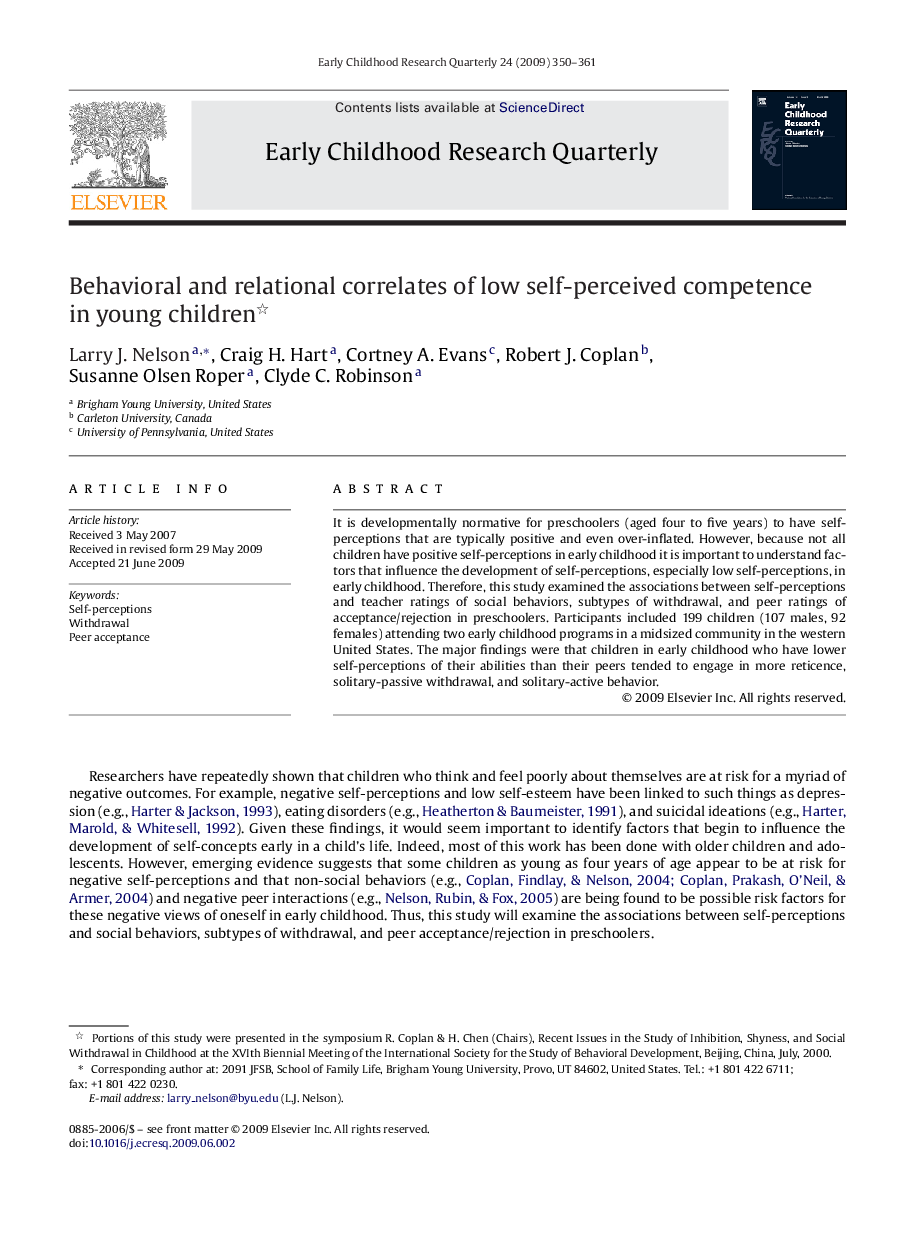| Article ID | Journal | Published Year | Pages | File Type |
|---|---|---|---|---|
| 353940 | Early Childhood Research Quarterly | 2009 | 12 Pages |
It is developmentally normative for preschoolers (aged four to five years) to have self-perceptions that are typically positive and even over-inflated. However, because not all children have positive self-perceptions in early childhood it is important to understand factors that influence the development of self-perceptions, especially low self-perceptions, in early childhood. Therefore, this study examined the associations between self-perceptions and teacher ratings of social behaviors, subtypes of withdrawal, and peer ratings of acceptance/rejection in preschoolers. Participants included 199 children (107 males, 92 females) attending two early childhood programs in a midsized community in the western United States. The major findings were that children in early childhood who have lower self-perceptions of their abilities than their peers tended to engage in more reticence, solitary-passive withdrawal, and solitary-active behavior.
